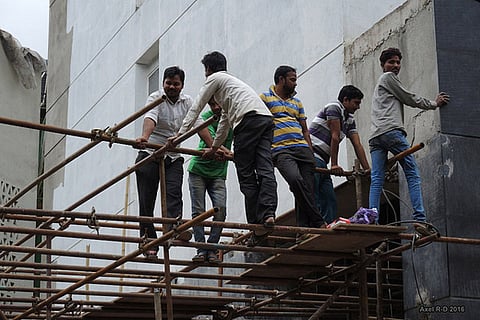Neoliberalism, foreign aid and trade unions in Nepal
The story of the economic transformation of the early 1990s is a fairly well-established one. But the particulars of how neoliberal policies unfolded in different countries, particularly in smaller economies, is often lost in the broad sweep of global history. In Nepal, this narrative has also been eclipsed by overwhelming media and academic attention to the country's decade-long armed conflict between the Maoist rebels and state forces, and the constitution-writing processes that followed. When the economic story is told, decades of changes are often explained through a smattering of macroeconomic indices.
However, a closer examination of those years reveals how market liberalisation, foreign aid and trade-union politics intersected in Nepal. In her recently published book Death of an Industry: The cultural politics of garment manufacturing during the Maoist revolution in Nepal, anthropologist Mallika Shakya looks at Nepal's garment industry, which boomed in the 1990s but collapsed after 2005. She argues that Nepal's neoliberal story can't be told without looking at both international and domestic factors. Shakya, an assistant professor in the Department of Sociology at the South Asian University, spoke to us about the paradoxes of foreign aid, the insularity of Nepal's economists, and the paucity of scholarship on the country's trade unionism.

